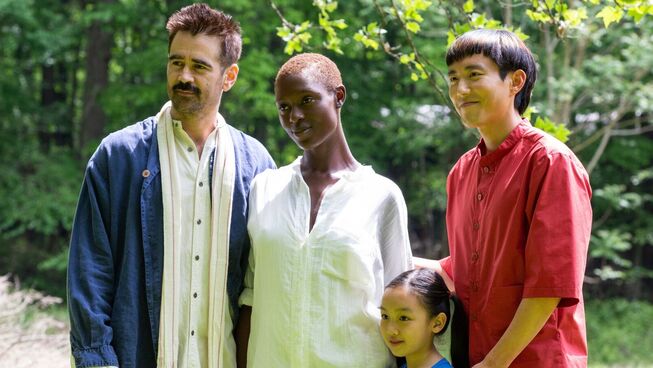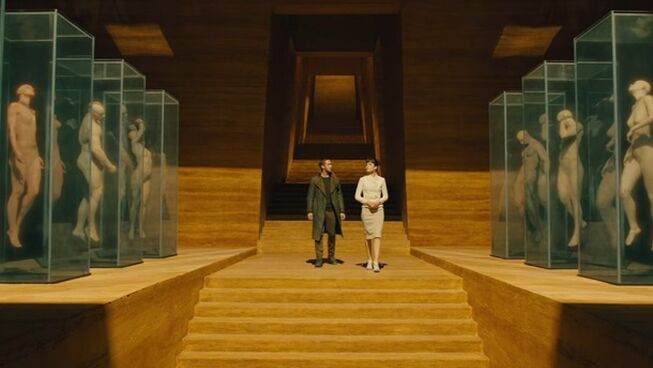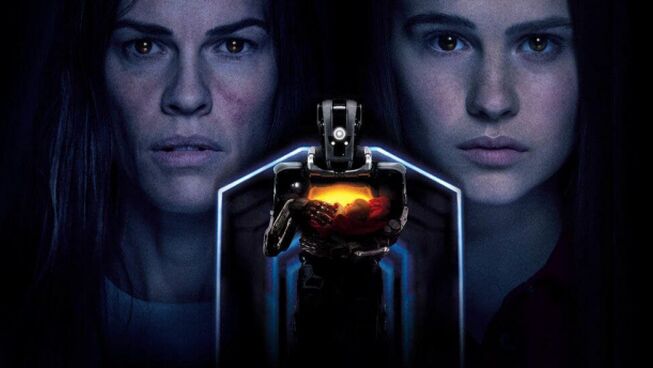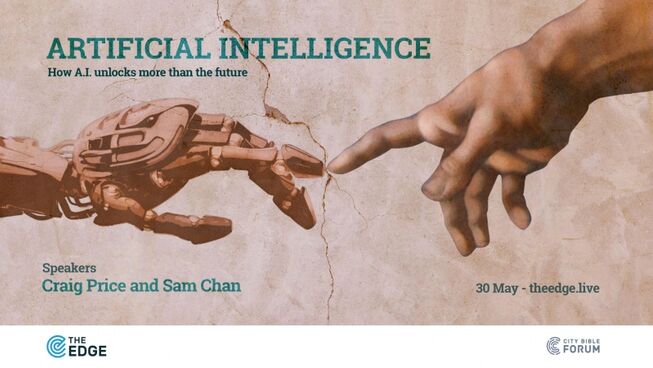
3.5 out of 5 stars
Alexander Weinstein’s short story ‘Saying Goodbye to Yang’ is surprisingly disconcerting in how it is set in the not too distant future. This context makes this less science fiction and more of a possible reality. Then for this analysis of a world influenced by techno-sapiens (robots) to be placed in the hands of the narrative essayist Kogonada (Columbus), this whole journey inevitably becomes a deep dive into the human soul. An experience reminiscent of working through life’s most significant considerations in an immersive, meditative state.
Yang (Justin H. Min) was purchased by Jake (Colin Farrell) and Kyra (Jodie Turner-Smith) to be a brother and carer for their adoptive daughter, Mika (Malea Emma Tjandrawidjaja). As a humanoid companion to their daughter, he serves to educate her on her Chinese heritage and along the way to provide a sibling's love. Then one day, Yang malfunctions unexpectedly. He does not seem repairable until Jake’s neighbour recommends a repairman who has special skills to fix broken robots. This less-than-legal technician goes on to find software within Yang’s system that causes his conspiratorial mind to run rampant. His theories and fears make him share the worst-case scenarios about the couples’ adopted ‘son.’ Jake must determine if he can find the means of bringing Yang back to life or if he should and what secrets his operating system contains.
Like so many films of this genre, everything is cast in a dream-like state where the viewer is constantly questioning if things are truly as they seem. Then to add the Anglo-Asian-inspired architecture and lifestyle, this journey may cause many to move into a trance-like state as they grasp at what the film is saying. This visual experience complements the spiritual and cerebral investigation being undertaken by Colin Farrell’s character, while keeping the audience off-balance as they try to unearth the truth within the heart of the techno-sapien named Yang.
Colin Farrell and Jodie Turner-Smith slip beautifully into the melancholy of this ethereal and thoughtful narrative. The pair express their love for their family by showing how otherworldly Yang’s passing influences their lives. They must work through the grief as they unpack his death's ethical and moral implications and determine how human this figure had become as he wove himself into their family. Then as they realise that he has begun to show signs of self-actualisation, it becomes difficult to know how to treat his memory.
For those willing to plunge into this contemplative story of humanity, After Yang will engage every sense and thought process. Between the artistry of the cinematography and the analytical approach to life’s more prominent queries, this eventually proves to be a philosophical Blade Runner. Kogonada tackles all of the ethical dilemmas of robotics and artificial intelligence while unpacking a story of love, family and humanity.
REEL DIALOGUE: Why are we fascinated with finding a 'new and improved' human?
As the story progresses, After Yang exemplifies the underlying desire to create a being who will not exert their power over the world, but care for the human race.
This is one of the considerations addressed in the words of the Bible. Based on the premise of the creator God who made all mankind in his image, it is no wonder that God's creation would want to create. Even robots who are the creation of the creation. (Wrestle with this existential consideration) The desire to create manifests itself in art, food, clothing, housing, and even the sciences. There are many moral juxtapositions to wrestle through in this consideration of creating new life, but the very nature to create is ingrained in humanity.
The only challenge is that God continues to prove that he is the only one to get it right when it comes to the creation of humanity. So, is the desire to create new life merely a lesson in futility or too hard to deny? Discuss.
For by him all things were created, in heaven and on earth, visible and invisible, whether thrones or dominions or rulers or authorities—all things were created through him and for him. - Colossians 1:16







